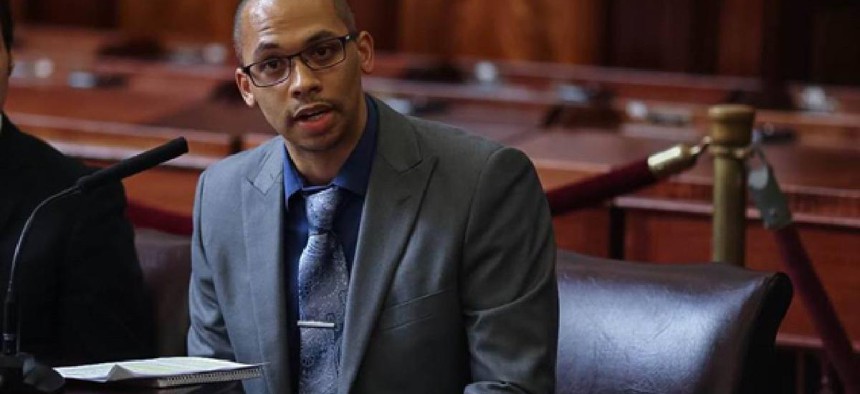100 New Yorkers Who Care: A more democratic giving model

A recently launched philanthropic venture is leveraging a small set of donors to make a large impact on local grassroots nonprofits.
Avoiding what can sometimes be a glacial grantmaking process – and the bureaucratic rules and laborious metrics that can accompany foundation funding – 100 New Yorkers Who Care has decided to make grant-making a participatory affair. The recently launched group engages young professionals to vote on where to focus their donations. It first met in December and has about 40 members to date, according to a founding member, Kevin Douglas. But it won’t stop at 100 if interest continues to grow.
Douglas, who is also co-director of policy and advocacy at United Neighborhood Houses, was inspired by an Albany-based chapter of the 100 Women Who Care Alliance, which pools together members’ donations and leverages consensus to decide where to donate.
“It was really after the election when I was, like many people, thinking, OK, the world has changed and it requires a different level of sustained engagement and commitment and actions to try to make things better and preserve community,” he said.
The participatory framework dates back to 2006, when a Michigan woman started a 100 Women Who Care group. Since then, dozens of loosely affiliated female- or male-led groups have sprouted up across the U.S. and Canada, including a 100 Women Who Care group in New York City.
Sandy Myers, another co-founder of 100 New Yorkers Who Care, said the idea is still a relatively novel one for New York because there are already so many nonprofits and philanthropic organizations.
“My gut says that it might be because New York is such a service-rich environment that people already have these connections to nonprofits that they want to support,” she said. “And that we do also see a new generation of people who are liking to give in a different way, and I think that’s very different from past generations.”
Of particular value to the grantee organizations is that the contributions are given with no strings attached, allowing them to put the funds toward programs or overhead. That’s a significant gift for nonprofits whose grant and contract dollars usually come with specific usage limitations.
“The idea of unrestricted grants is so critical for the sector,” said Myers, who is also the director of government and external relations at Selfhelp Community Services, noting that money for electricity, toiletries or supplies is often badly needed. “I very much support the idea that our money has this flexibility for the nonprofit to make the decision to apply it to where the need is greatest.”
The giving group joins another recent effort at more direct and democratic philanthropic giving. The New York Women’s Foundation is co-hosting the New York City Fund for Girls and Young Women of Color, whose participatory review committee is comprised primarily of young women of color who get to vote on which programs to fund.
The 100 New Yorkers Who Care meetings will generally be capped at an hour and the contribution is relatively low – $50 – to keep it attractive to young professionals. The effort to draw 100 members is for now, primarily an aspirational milestone.
Douglas said 100 New Yorkers Who Care may formalize its rules as it grows, but currently the ground rules are simple: During the quarterly meetings, each member will bring a check and can nominate a local nonprofit. (Those who don’t attend can also contribute.) After three of these are randomly selected, the nominators defend their selected nonprofits and answer questions, then the group votes. The organization with the most votes receives the full one-time contribution. Members are discouraged from nominating organizations with whom they have a financial or personal stake.
Most of its participants learned of the group by word-of-mouth and participation is open to anyone who supports the overall goals of the nonprofit sector, Douglas said. That includes city government workers, some in the financial services industry and others in far-flung professions.
The first meeting was held in a United Neighborhood Houses conference room, but the group is still seeking community or meeting spaces for its next meeting, scheduled for March 9.
The first one-time donation of $1,000 went to the Northern Manhattan Coalition for Immigrant Rights, which helps defend immigrants from deportation. It was nominated by Maria Lizardo, the executive director of the Northern Manhattan Improvement Corp., who said it was essential to contribute to local causes.
“I think it’s also important for me to come out of my little bubble and everyday work that I do and get to meet other people throughout the city that are committed and coming from different walks of life,” Lizardo said.